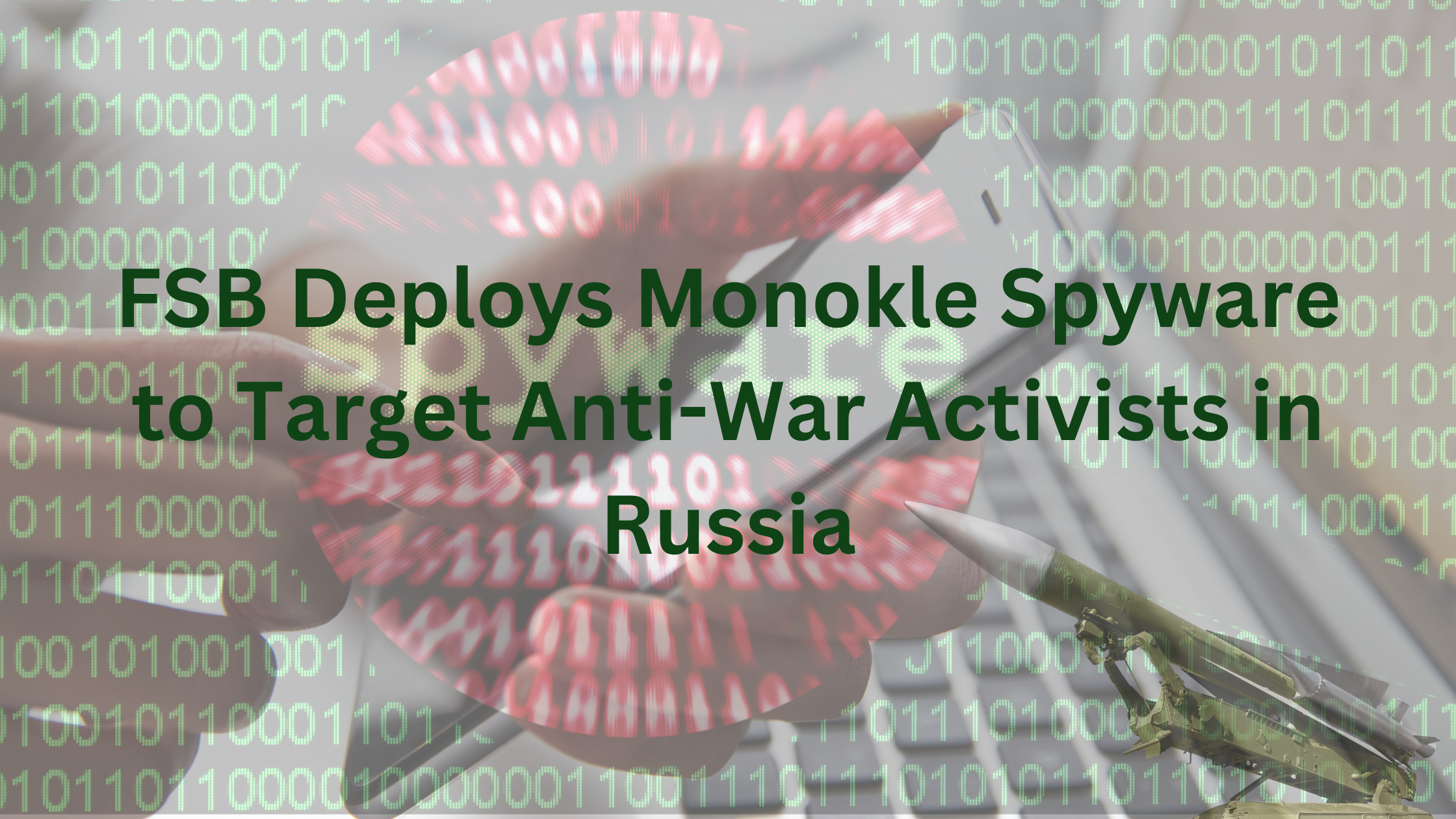Table of Contents
FSB Deploys Monokle Spyware to Target Anti-War Activists in Russia
In a chilling development that underscores the growing digital threats faced by dissidents, Russia's Federal Security Service (FSB) has been caught using sophisticated spyware to target anti-war activists within the country. The spyware, identified as an updated version of the notorious Monokle malware, was discovered on the phone of a Russian programmer and activist, Kirill Parubets, following his detention by FSB agents.
The case came to light when Parubets, who had been arrested for allegedly donating to Ukrainian organizations, noticed suspicious activity on his Android device after it was returned by FSB agents. Upon investigation by cybersecurity experts from Citizen Lab and the human rights group Pervy Otdel (Dept.One), it was confirmed that his phone had been infected with a highly sophisticated spyware.
This malware, disguised as a popular app called Cube Call Recorder, grants its operators unprecedented access to the victim's device. The spyware's capabilities are extensive and deeply concerning. It can track the user's location, access SMS content and contact lists, record phone calls and screen activity, capture video through the camera, extract messages and files, and even execute shell commands to install additional malicious packages.
What makes this case particularly alarming is that it marks the first known instance of Monokle being deployed against Russians opposing the war in Ukraine. The original Monokle spyware, first identified by cloud security company Lookout in 2018, was developed by the U.S.-sanctioned Russian defense contractor Special Technology Center (STC). This latest version appears to be an evolution of that tool, with enhanced encryption and expanded permissions.
The infection method in Parubets' case highlights a growing trend in state-sponsored surveillance. Rather than relying solely on remote hacking techniques, authorities with physical access to devices can install spyware directly, often coercing victims to unlock their phones. This approach bypasses the need for sophisticated zero-day exploits and emphasizes the vulnerability of individuals in custody.
Experts warn that such tactics may become more widespread, particularly for high-risk individuals such as activists, journalists, and foreign visitors in Russia. The incident serves as a stark reminder that anyone whose device has been confiscated by security services should assume it can no longer be trusted.
The spyware's sophisticated nature is evident in its two-stage deployment process and its ability to operate stealthily. It can perform actions remotely while keeping the screen off, making detection by the user nearly impossible. The malware also has the capability to infiltrate predictive text dictionaries, providing insights into the victim's interests and communication patterns.
Citizen Lab's analysis revealed potential plans for expansion, with references to iOS in the spyware's code suggesting a possible variant for Apple devices. This indicates a concerted effort by the developers to broaden their surveillance capabilities across multiple platforms.
The implications of this discovery extend beyond individual privacy concerns. It represents a significant escalation in the Russian government's efforts to suppress dissent and monitor anti-war sentiment. The use of such advanced spyware against its own citizens demonstrates the lengths to which authorities are willing to go to maintain control over information and opposition voices.
As tensions continue to simmer over Russia's ongoing conflict with Ukraine, the targeting of anti-war activists with state-sponsored malware raises serious questions about civil liberties and the right to privacy in Russia. It also serves as a warning to activists and dissidents worldwide about the evolving nature of digital surveillance and the need for heightened cybersecurity awareness.
The international community and human rights organizations are likely to view this development with grave concern, potentially leading to calls for increased sanctions against entities involved in developing and deploying such invasive surveillance tools. As the digital battleground expands, the line between national security and personal freedom becomes increasingly blurred, leaving activists and ordinary citizens alike vulnerable to unprecedented levels of state intrusion.
Found this article interesting? Keep visit thesecmaster.com, and our social media page on Facebook, LinkedIn, Twitter, Telegram, Tumblr, Medium, and Instagram and subscribe to receive tips like this.
You may also like these articles:
Anthony Denis
Anthony Denis a Security News Reporter with a Bachelor's in Business Computer Application. Drawing from a decade of digital media marketing experience and two years of freelance writing, he brings technical expertise to cybersecurity journalism. His background in IT, content creation, and social media management enables him to deliver complex security topics with clarity and insight.
